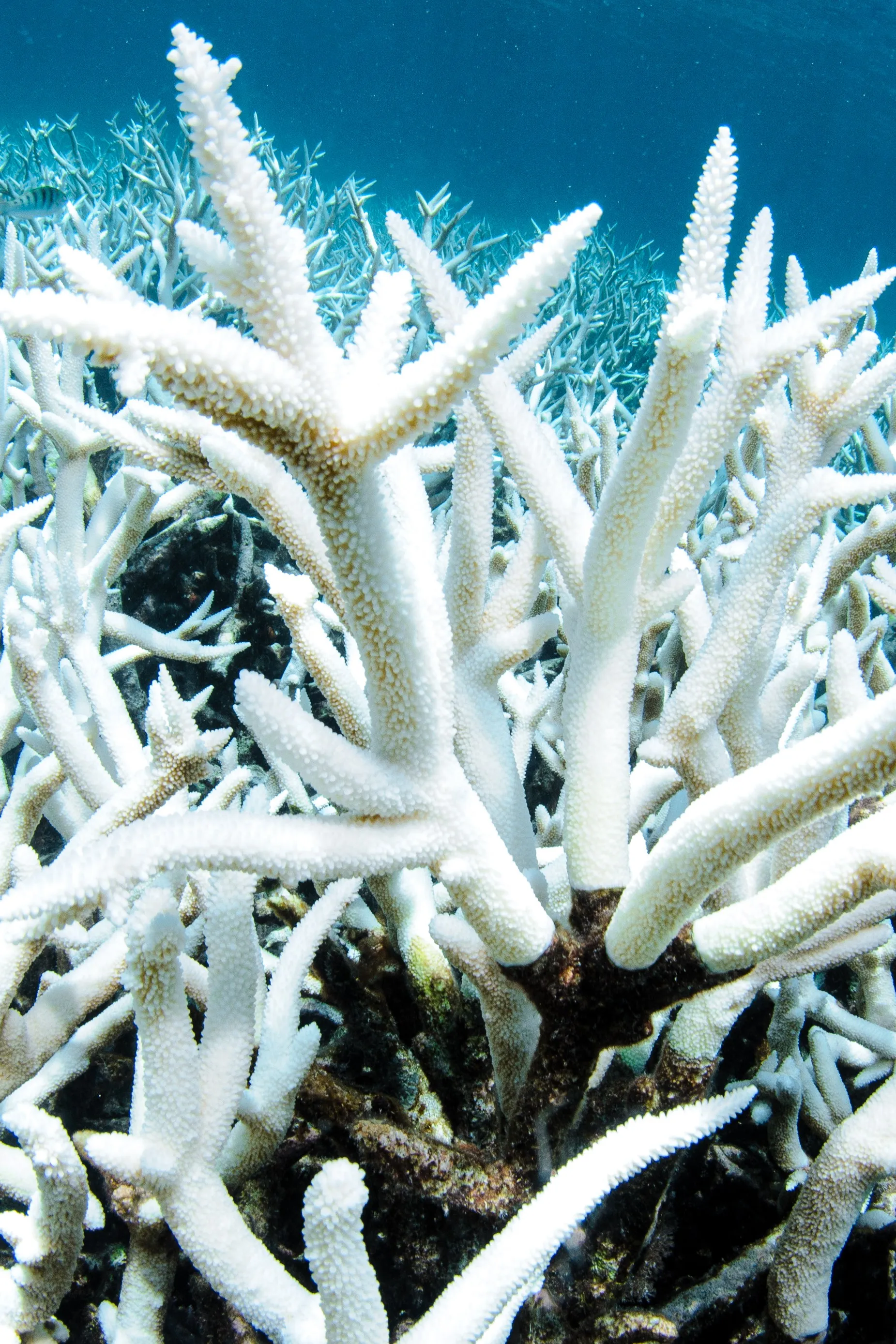Imagine a bright and colourful underwater garden, full of pinks, purples, greens, and oranges — that’s what a healthy coral reef looks like. But sometimes, these busy, beautiful reefs start turning ghostly white. This troubling change is called coral bleaching, and it’s something serious that’s happening around the world.
What Is Coral Bleaching?
Coral bleaching happens when corals — which are tiny sea animals called polyps — lose the colourful algae that live inside them. These algae, known as zooxanthellae, are super important to corals. They give corals their bright colours, and they also help the corals get food by using the sunlight.
When the coral is healthy, the algae live happily inside it. But if the water around the coral becomes too warm or dirty, or if there’s too much sunlight, the coral gets stressed. Under stress, it pushes the algae out. Without the algae, the coral’s tissue becomes almost transparent so that you can see its white skeleton.
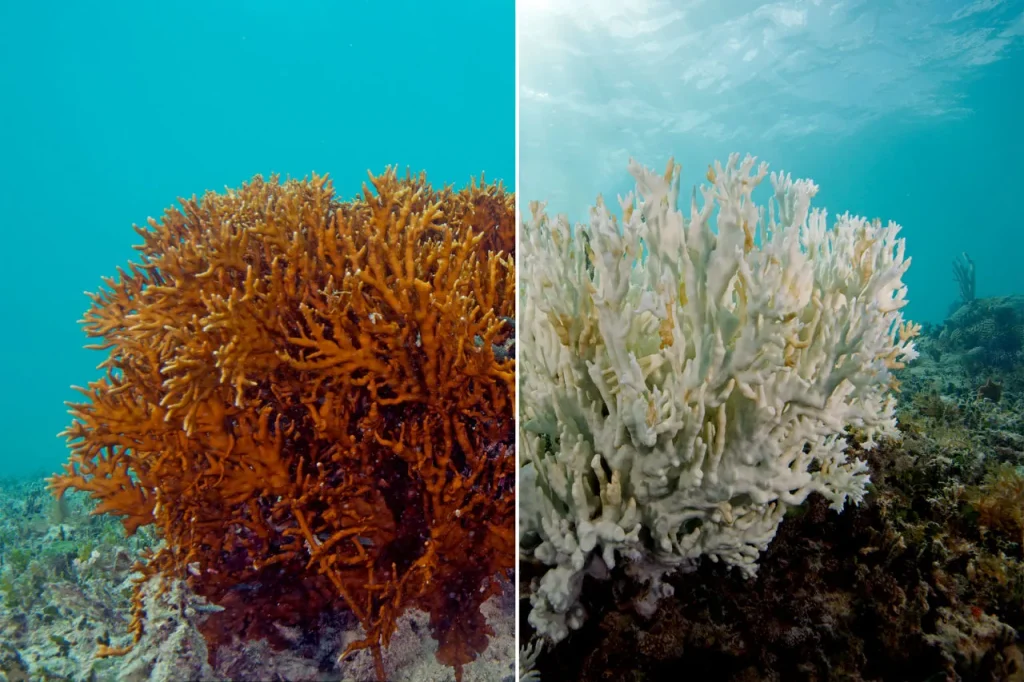
Why Is This Happening?
Several things can make corals bleach:
- Warmer Water
The number one reason is a rise in sea temperature — even just 1 °C warmer for a few weeks can trigger bleaching. - Too Much Sunlight
When it’s very sunny and the water is shallow, the extra light can worsen bleaching. - Poor Water Quality and Pollution
Runoff from land, such as dirty water from farms or cities, can carry chemicals and nutrients that stress coral. - Ocean Acidification
When there’s too much carbon dioxide (CO₂) in the air, the ocean absorbs it and becomes more acidic. This makes it harder for corals to build their hard skeletons, weakening them. - Extreme Tides
If the tide goes out very low, some corals are exposed to the air, which can also cause stress.

What Happens to Coral When It Bleaches?
- They Become Very Weak: Without the algae, corals lose much of their energy because they’re missing their main food source.
- Risk of Disease: Bleached corals are more likely to get sick.
- Starvation: If the stressful conditions last a long time, the corals can’t survive — and they may die.
- Impact on Other Sea Life: Many fish and sea creatures rely on coral reefs for shelter and food. If corals bleach and die, other animals may lose their homes.
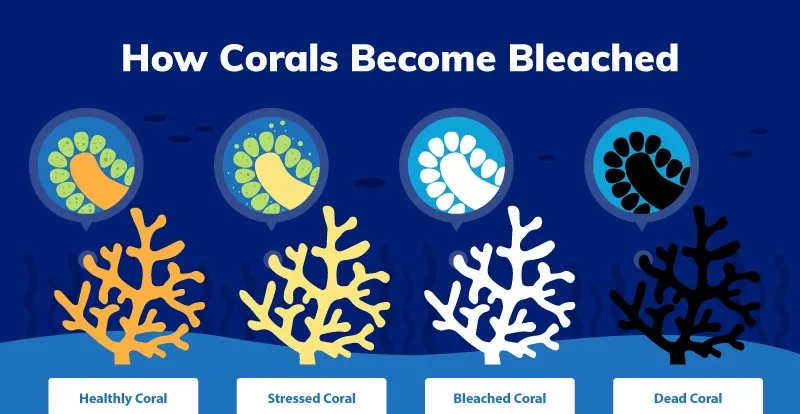
Can Corals Recover?
Yes — sometimes. If water stress goes away, corals can regain the algae and regain their colour. But recovery isn’t always easy or guaranteed. If the stress keeps happening — for example, if the water stays too warm again — corals may not survive or may become too weak to recover.
Why Is This So Important?
Coral reefs are more than just pretty underwater gardens. They are:
- Homes: Reefs support thousands of sea creatures — fish, crabs, sea stars, and more.
- Protection: Coral reefs help protect coastlines from storms and waves.
- Food: People around the world rely on reef fish for food.
- Income: Many people visit coral reefs to dive and snorkel, so reefs are also important for tourism.
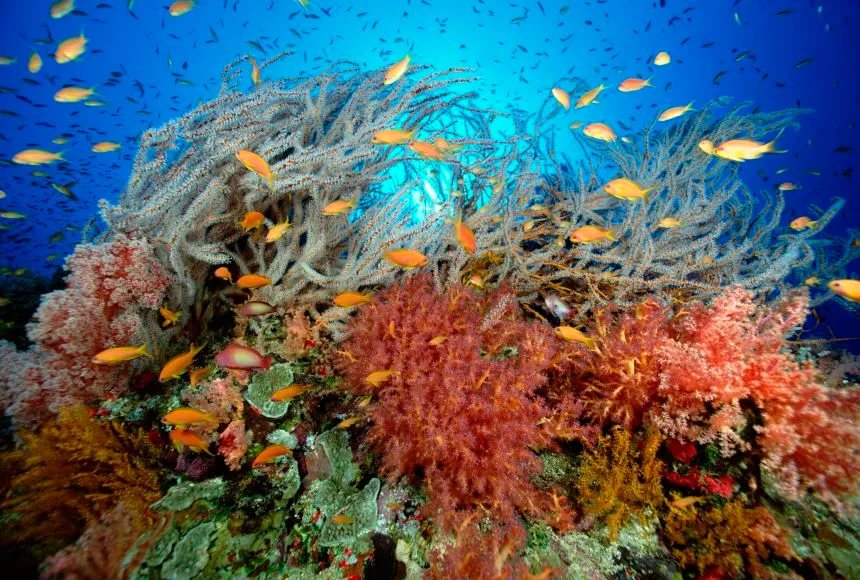
When coral reefs bleach and die, all of these benefits are at risk.
What Can We Do to Help?
It might feel like we’re small and far away from reefs — but even we can do things that help:
- Speak Up: Share what you know about coral bleaching with your friends and family.
- Reduce Carbon Footprint: Use less energy, walk or cycle more, or turn off lights when you don’t need them.
- Protect the Ocean: Don’t litter and be careful with chemicals and plastics.
- Support Conservation Groups: Organisations that work to protect reefs often need donations or volunteers.
- Learn More: The more you know, the more you can help.
Why the World is Worried
Scientists are increasingly seeing mass bleaching events. Many of the world’s coral reefs are under threat because of climate change, pollution, and other stresses. If these problems continue, we could lose many beautiful and important reefs. But there is hope: people, scientists, and governments are working to protect reefs and give them a better chance to survive.
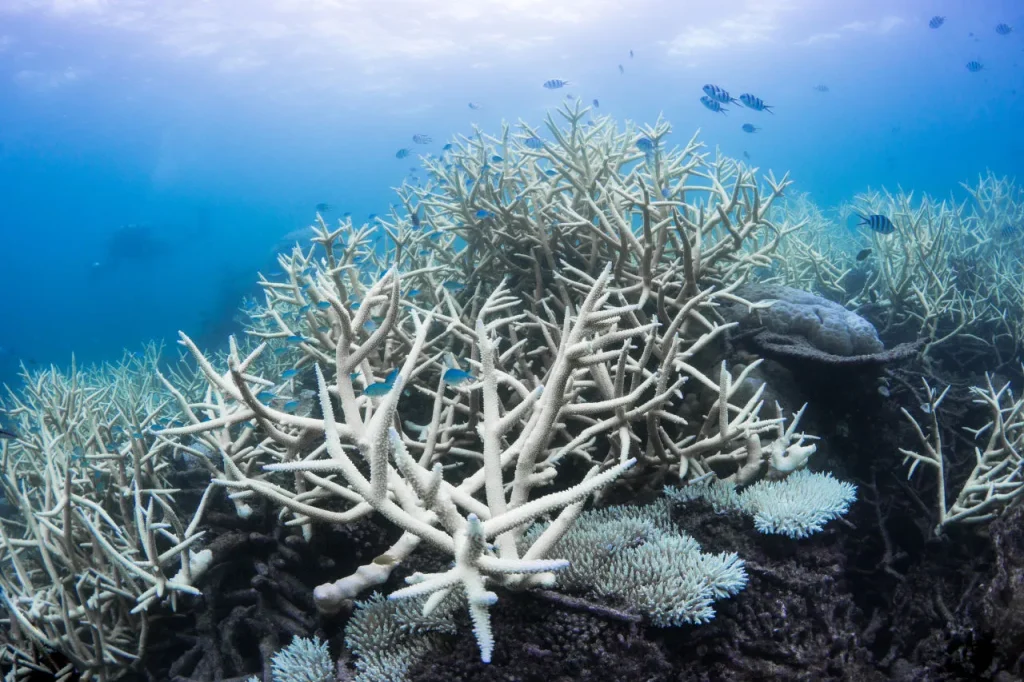
Final Thoughts
Coral reefs turning white is like a warning light in the ocean. The corals are stressed, and the tiny algae that help them are gone. If things don’t change, these amazing underwater worlds could suffer terribly. But by learning more, talking about it, and making small changes in our daily lives, we can help protect coral reefs — for fish, for nature, and for future generations like you.
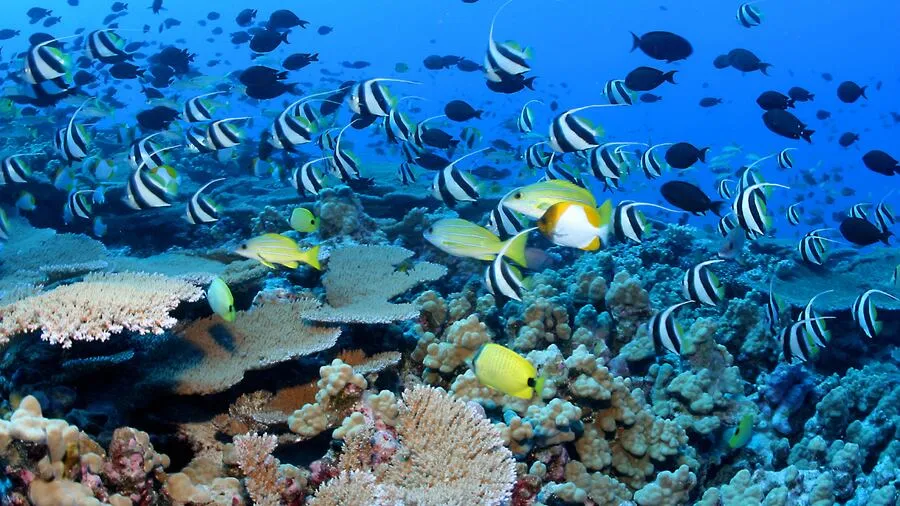
For more interesting articles, please visit www.kidzherald.com

